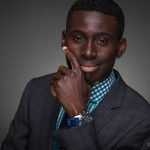
On the 25th of January 2018, I embarked on a solemn journey of self-discovery, reflection and erudition by visiting my roots and motherland, Ghana. It dawned on me that it has taken almost 10 years since I left, in addition, I do recall leaving Ghana with the goal of advancing my knowledge on race relations, mental health, resiliency and historical trauma. My country of birth almost 10 years ago, and on my return, I came with my boss, Mayor Dave Kleis, Ryan Daniel, CEO of Metro Bus, and Marcus Owens, President, and CEO of NEON and a Bush Fellow. The time spent planning for this trip was extensive, although this is the country I was born in, there were a lot of uncertainties. One being that Ghana had gone through multiple transitions democratically and economically. I drew up different schedules that encompassed various sites to be visited. I coordinated this visit with friends and colleagues I grew up with. Every individual on this trip had a different objective and expectation, I encouraged folks to have an open mind and absorb all necessary information.
I visited the travel clinic prior to my departure and I had hopes of not needing any medications or shots since that was my country of birth. My medical doctor educated me on the need to get all necessary shots and medications. He mentioned my body was acclimatized to the US and advised I proceed with caution and take all necessary prescriptions during my trip. I started to wonder whether I was visiting another country. I wondered how accustomed my body was to the US and the extent to which I had integrated into the US culture. I wondered if I would be a stranger in my homeland and if I would remember my roots.
On the 26th of February 2018, at 8:15 am, the last words I heard as we touch down at Kotoka International Airport (Ghana’s only international airport) was “Akwaaba[welcome], welcome to Ghana”. I felt nostalgic after hearing these words and felt the warm air sweep through the cabin as the doors were opened. At this point, I was ecstatic as I headed to the baggage claim area for my luggage and to connect with the rest of the delegation. We were greeted by an entourage which included friends and family. A lunch was prepared for us. The greeting and lunch with family and friends quickly reminded me of Ghana’s collectivistic culture on how the group norm is often emphasized.
I had the privilege of visiting with the Minister for Inner City and Zongo development of Ghana. Zongo is synonymous with low-income communities and this was a new ministry created to address the disparities as it relates to poverty, economic status, education, etc. I learned some of the strategies the government was implementing in addressing these disparities. During our stay in Ghana, we visited many places. I will focus on the highlight of my trip as writing about my entire trip will take up extensive space and time. If you would like to learn more or have questions on a subject, kindly let me know.
The Cape Coast Castle was the highlight of my trip. It was an intriguing, and emotional experience. From a historical standpoint, the Cape Coast castle was constructed by the Portuguese in 1550 on the coastline of Gold Coast (Cape Coast). The castle passed through the hands of the Danes, the Dutch, and finally, the British in 1664 where this site was used for slave trade. This fortress was among several on the West African coast where a projected number of 10 to 40 million of enslaved Africans were transported to the Americas and Caribbean. The Castle had a unique texture, on top of the dungeons housing slaves was a church, and close by was the governor’s mansion containing a total of 19 windows. I was saddened to learn that up to 1,000 males and 500 females were chained and cramped in the dark dungeon with limited ventilation. Slaves were made to live in their human waste with no form of proper sanitation. That confined space was a holding zone until they were shipped exiting from a door labeled “door of no return” into the “New World”. The women were raped countlessly, and the weak and sick slaves had bricks tied to their legs and were dropped into the ocean. I spent few minutes in a cell where slaves who rebelled were kept. This space had no light; slaves had no access to food. The only way out was by your dead body being taken out after being starved until death presented itself. For a moment, I could feel the walls talking to me. The pain and suffering my ancestors had to endure is unimaginable. It was an emotional experience. It was necessary to have a moment of silence, prayer and reflection for the staggering atrocities committed during slavery, the millions of lives lost, lesson learned; yet hopeful for a sense of closure, solemn forgiveness and healing, and enhanced relationships. Processing these emotions was difficult and I have come to accept time, reflecting, self-care, friends and family support, journaling and forgiveness are imperative coping skills to fully addressing my struggles. I could not imagine how humans could treat their fellow humans in the worst despicable way.
I struggled with sharing my story and contemplated if I needed to capture these events or only focus on the fun aspect, however, I observed that journaling and sharing were relevant in processing my emotions. Visiting the Cape Coast Castle, Osu Castle, and the Elmina Castle reminded me of how history tends to repeat itself. The atrocities that took place during the Holocaust are quite synonymous with the events of slavery, however, the magnitude and ramification of slavery are staggering. As an African, I experienced some level of guilt and shame for allowing our families to be taken without putting on a fight, which seems ubiquitous among some locals in Ghana. Yet, I am reminded that there are some that fought hard to end slavery and others that were brainwashed into partaking. I have come to empathize with African Americans living in the US who still deal with the ramification of slavery, from historical trauma to epigenetic trauma. As a Clinical Therapist, community leader, consultant and a City of St. Cloud employee, I must deeply factor in these aspects of psychological trauma when working with clients and community members. On issues of improving race relations, one cannot undermine or relegate one’s history, personal story, and journey.
Visiting my motherland reminded me of my roots and how dependent many are on me. Consciously or unconsciously, I must strive to be a better version of myself as a leader. The climax of my story is a relationship I established and strengthened. Marcus and I shared a special bond during this trip and I now consider him a brother, from a historical standpoint, he is 17 percent Ghanaian and I was honored to have brought him home, finally. The Mayor of St. Cloud, Dave Kleis continues to share his Ghana trip story in the community. People are enlightened and captivated by his story and how much he learned. As a leader, through this experience, I learned to listen actively, talk less, and enjoy valuable moments with friends and family.
Marcus gifted me a book titled “Tribe of Mentors”, it is a collection of short life advice from the best in the world. Debbie Millman, an influential designer, mentioned that as a leader, one needs to ignore being a “people person”. She stressed on the need of having a point of view by sharing it “meaningfully, thoughtfully and with conviction”. As a leader, I will strive to live by this core value. This makes lots of sense because every statement or utterance you make, there will be those that will agree and others that will disagree vehemently. As a leader, I need to focus on what I believe in and share them in a meaningful way.



